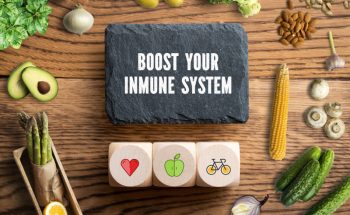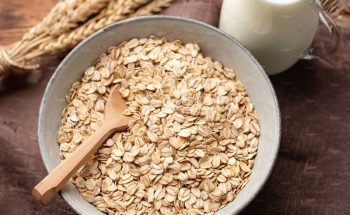The language of detox has dominated the UK wellness industry for decades. Cleanses, teas and supplements have been marketed as shortcuts to vitality, promising to flush out unnamed toxins and reset the body. By 2025, the picture has shifted. Consumers, health experts and regulators are rejecting the promise of a quick purge and instead embracing evidence-based strategies that strengthen the body’s existing systems. The most effective form of detox is not a seven-day cleanse but a lifestyle built on diverse plants, functional foods and mindful routines that sustain the body’s natural processes every day.
The wellness landscape in 2025
Consumer data shows that health has become a year-round commitment rather than a seasonal resolution. Fitness spending rose by 11% in December and a further 4% in January, a sign of continuity rather than a January rebound. Young adults aged 18 to 34 are driving the movement, but older demographics, particularly those over 65, are equally influential in shaping the health economy through online purchasing and e-commerce adoption.
Nutrition choices are evolving in parallel. Most UK adults are actively reducing processed food intake and prioritising nutrient-dense, whole foods. The most substantial surge of interest is in gut health, with 70% of people boosting fibre intake and more than a quarter adding probiotics or live cultures. These shifts point to a deeper trend: health as an integrated lifestyle built on prevention, not reactive cures.
Why detox remains a paradox
Despite the move toward proactive health, the detox industry continues to thrive on the promise of a reset. Commercial detoxes typically involve fasting, juices, restrictive regimens or unregulated supplements. They appeal to psychology more than physiology: the notion of a quick purge after indulgence is compelling, especially when promoted through social media and celebrity endorsements. Consumers seek genuine improvement but are often funnelled into regimens that lack scientific backing and, in some cases, carry health risks. The paradox lies in good intentions being misdirected by marketing.
The science of natural detoxification
The human body is already equipped with highly effective detox mechanisms. The liver processes toxins through a sophisticated two-phase system, converting fat-soluble compounds into water-soluble forms that can be eliminated. The kidneys filter the blood, removing metabolic waste within hours. The gut, skin and lungs provide additional pathways for excretion. These functions are continuous and finely tuned. Commercial cleanses repackage this natural process as something fragile, implying deficiency where none exists.
Systematic reviews have consistently found no clinical evidence supporting detox diets for weight loss or toxin elimination. Reported benefits such as temporary weight loss are usually the result of calorie restriction and fluid loss, not fat reduction. Improvements in energy or focus stem more from eliminating processed food, alcohol or caffeine than from juices or supplements.
Risks and regulation
Restrictive detoxes can lead to deficiencies, fatigue and dangerous electrolyte imbalances. Some juices are high in oxalates, which increase kidney stone risk, and unregulated supplements have been linked to liver injury. UK and EU food law prohibit products from claiming to cure or prevent disease, yet the market remains flooded with misleading products. The Food Standards Agency has removed unsafe items, but gaps in regulation mean consumers still face risk.
| Parameter | Natural systems | Commercial detox claims |
| Mechanism | Liver metabolism, kidney filtration, gut elimination | Vague flushing or cleansing |
| Organs | Liver, kidneys, gut, skin, lungs | Reliance on teas, juices, and supplements |
| Evidence | Extensive, peer-reviewed science | Anecdotal, low-quality studies |
| Safety | Safe and continuous | Risk of deficiencies, organ damage |
| Sustainability | Lifelong and stable | Short-term, unsustainable |
The gut health revolution
The microbiome’s central role
Gut health has become the most credible successor to the detox narrative. Research links the microbiome to immunity, mental health and cardiometabolic outcomes. A diverse gut ecosystem supports waste elimination, nutrient absorption and energy regulation.
Fibre first
Despite awareness campaigns, 90% of UK adults still fall short of fibre recommendations. Nutrition experts now promote the 30 plants a week principle, which encourages variety rather than volume alone. Studies from King’s College London show that greater plant diversity improves cholesterol and blood sugar control, strengthening the microbiome and lowering disease risk.
Fermented foods returning to the mainstream
Live yoghurt, kefir, sauerkraut, kimchi and kombucha are being embraced for their probiotic benefits. Regular consumption supports gut diversity, immunity and cholesterol levels. These foods exemplify functional nutrition: not replacements for the body’s natural detox, but supportive tools for digestive resilience.
Fun fact: Fermentation was once a survival method for food storage. Today, it is celebrated for enhancing both flavour and gut health.


The plant-forward movement
From trend to mainstream
Plant-based eating is no longer niche. By 2025, 22% of Britons report plans to increase plant food consumption, citing health, sustainability and a preference for less processed meals. Strategies range from designated meat-free days to smoothies packed with plant proteins and vegetables.
The science of diversity
Research confirms that plant diversity matters more than sheer volume. A wide intake of grains, pulses, seeds, herbs and vegetables delivers the fibres and polyphenols that shape a healthy gut and reduce chronic disease risk. Unlike restrictive cleanses, this is a philosophy of addition rather than elimination.
Addressing nutritional gaps
Health authorities emphasise that a plant-forward diet requires attention to specific nutrients. Vitamin B12, vitamin D, iron and omega-3s may need to be sourced from fortified foods or supplements. This nuance ensures that the plant movement is safe and sustainable rather than unbalanced.
Fasting as metabolic research
A practice under study
Intermittent fasting and related protocols are subjects of growing clinical research. Evidence suggests benefits for insulin sensitivity, blood pressure and weight management, though the British Heart Foundation notes the need for longer-term trials. Physiologically, fasting shifts metabolism from carbohydrate to fat use, offering potential benefits but requiring supervision.
Fasting is not detox
It is crucial to distinguish between evidence-based fasting protocols and commercial detox cleanses. Fasting is being examined through controlled studies, whereas detoxes rely on anecdotal evidence and vague claims. Risks exist, such as dehydration or dizziness, but these differ from the dangers of unregulated supplements.
NHS case study
The NHS Type 2 Diabetes Path to Remission Programme demonstrates how structured, supervised dietary restriction can achieve clinical outcomes. Patients follow a low-calorie plan for 12 weeks under medical supervision, with evidence from DiRECT and DROPLET trials showing remission potential. Unlike detox products, this intervention is medically justified, closely monitored and peer-reviewed.
Regulation and trust in health claims
Legal oversight
UK and EU law requires that all health claims on food or supplements be accurate and evidence-based. The Food Standards Agency has acted against illegal products such as Miracle Mineral Solution. Still, consumers must remain vigilant, as not every misleading claim is pre-emptively blocked.
Building trust online
The E-E-A-T framework is central for identifying reliable digital health content. Expertise is shown through qualified authorship and citations. Authoritativeness comes from professional recognition and credible backlinks. Trustworthiness relies on transparent policies, secure websites and accurate referencing. For health information, these signals help readers cut through marketing noise and recognise evidence-based advice.
Practical strategies for wellness
Core dietary pillars
The NHS Eatwell Guide remains the foundation: fruits, vegetables, wholegrain carbohydrates, lean protein and healthy fats. Hydration of 6 to 8 glasses a day supports kidney and liver function, with sugar-limited drinks kept to small amounts. Lifestyle factors, such as exercise, sleep, and stress reduction, complete the picture.
Applying current trends
- Plant diversity: Move beyond five a day by incorporating 30 different plants weekly. Use pulses, seeds and herbs to expand variety.
- Fermented foods: Add kefir, sauerkraut or live yoghurt regularly.
- Protein and fats: Combine beans, eggs, fish and nuts with olive oil or avocado.
- Mindful eating: Slow chewing aids digestion and satiety.
| Trend | Rationale | Evidence-based action |
| Gut health | Diversity linked to immunity and metabolic health | Eat 30 plants per week and include fermented foods |
| Plant-forward | Lower obesity and heart disease risk | Adopt meat-free days and monitor key nutrients |
| Functional foods | Targeted support from probiotics and polyphenols | Include cruciferous vegetables, oily fish, and live yoghurt |
| Fasting | Research suggests improved metabolic markers | Seek medical advice before starting, and focus on balanced meals |
Conclusion: the sustainable alternative to detox
The commercial detox narrative is a distraction from what science shows. The body does not need cleanses or supplements to eliminate toxins. It already has robust systems for this task. What it does require is consistent support through nutrition, hydration, movement and rest.
The future of UK wellness lies not in products or short-term regimes but in balanced, plant-rich diets, fermented foods, mindful routines and sustainable habits. Consumers who embrace this approach will find that vitality comes not from a reset button but from a continuous, evidence-based lifestyle.
As the old saying goes, slow and steady wins the race. In health, as in life, the steady path outpaces the lure of shortcuts.





